|
Protect The 1st is proud to announce our filing of an amicus brief before the U.S. Supreme Court in a pivotal case challenging a law in Michigan that restricts the religious rights of parents.
This legal challenge opposes what is known as a Blaine Amendment. This lawsuit is spearheaded by a group of Michigan parents confronting the amendment's prohibition on state aid to private, religiously affiliated schools. They show that it violates the Equal Protection Clause by denying families the opportunity to advocate for the freedom to choose educational options that align with their religious values. The origins of Blaine Amendments are steeped in ugly history marked by discrimination and bigotry. Initially proposed as a federal law in 1875 by House Speaker James G. Blaine, these amendments seek to prevent direct government aid to religiously affiliated educational institutions. They reflect a period of intense anti-Catholic sentiment, targeting the influx of Catholic immigrants and their schools. While the federal amendment failed, many states, including Michigan, adopted similar provisions. Michigan's Blaine Amendment, like those of other states, effectively bars state support for religious schools, impacting those who seek education aligned with their religious beliefs and cultural values. Protect The 1st believes that such amendments are not only a relic of a prejudiced past but continue to infringe on our First Amendment rights today. They undermine the pluralism that is vital to our nation’s educational landscape by restricting access to diverse schooling options that reflect familial and cultural values. This approach runs counter to the essence of American liberty and the pursuit of happiness, which includes the right of parents to direct their children's education. Our brief celebrates the opportunity to challenge Michigan’s outdated and discriminatory Blaine Amendment. By standing with the petitioners, we aim to affirm the importance of educational choice and religious freedom, ensuring that all families have the right to educate their children in a manner consistent with their beliefs. Just five days after the petitioners filed before the U.S. Supreme Court, the Court called for a response in this case, a positive sign that the Court is seriously considering granting it cert. Protect The 1st looks forward to further developments in this case. When does a legal reporting requirement for a social media company become a violation of the First Amendment? When it drums up public and political pressure to enforce viewpoint discrimination.
This is the conclusion of legal scholar Eugene Volokh and Protect The First Foundation, which filed an amicus brief late Wednesday before the Ninth Circuit Court of Appeals asking it to overturn a lower court ruling that upheld a California law requiring social media companies to disclose their content moderation practices. California Bill AB 587, signed into law by Gov. Gavin Newsom in 2022, compels social media companies to produce two such reports a year on their moderation practices and decisions, to be published on the website of the California Attorney General. This law “violates the First Amendment’s stringent prohibition on viewpoint discrimination” by “requiring social media companies to define viewpoint-based categories of speech,” declared Volokh, Senior Legal Advisor to Protect The 1st. “The law also requires these companies to report their policies as to those viewpoints, but not other viewpoints ...” This brief supports the challenge from X Corp.’s lawsuit filed in September 2023 that also asserted that AB 587 violates the First Amendment, which “unequivocally prohibits this kind of interference with a traditional publisher’s editorial judgment.” Volokh and Protect The 1st cited the landmark U.S. Supreme Court case, NAACP v. Alabama (1958), in which the Court overturned an Alabama law that would have compelled disclosure of the NAACP’s membership lists. The threat behind this law, the Court noted, relied on governmental and private community pressures that would result in the harassment of individuals and discouragement of their speech. “Generating either massive fines or public ‘pressure,’ a euphemism for public hostility, triggers the most exacting scrutiny our Constitution demands,” Volokh told the court. “California Assembly Bill 587 violates the First Amendment’s stringent prohibition on viewpoint discrimination. And AB 587 does so by leaning on social media companies to do the government’s dirty work, either through fear of fine or public pressure.” The brief cites a Supreme Court opinion that states “what cannot be done directly [under the Constitution] cannot be done indirectly.” Volokh writes: “The intent behind the law is clear from its legislative history, comments by its enforcer (Attorney General Rob Bonta), and common sense. That intent is to strongarm social media companies to restrict certain viewpoints—to combine law and public pressure to do something about how platforms treat those particular viewpoints, and not other viewpoints. That confirms that the facial viewpoint classification in the statute is indeed a viewpoint-based government action aimed at suppressing speech—and that violates the First Amendment.” Protect The 1st will continue to report on X Corp.v. Bonta as an important flashpoint in the continuous struggle to keep speech free of official regulation. In an amicus brief before the U.S. Supreme Court earlier this year, Protect The 1st told the Court that curtailing Section 230 of the Communications Decency Act of 1996 “would cripple the free speech and association that the internet currently fosters.” Consistent with that recommendation, the Court today declined various invitations to curtail that law’s important protections for free speech.
Joining with former Sen. Rick Santorum, we demonstrated in our amicus brief that Section 230 – which offers liability protection to computer-services providers that host third-party speech – is essential to enabling focused discussions and keeping the internet from devolving into a meaningless word soup. “If platforms faced liability for merely organizing and displaying user content in a user-friendly manner, they would likely remove or block controversial – but First Amendment protected – speech from their algorithmic recommendations,” PT1st declared. We stated that a vibrant, open discussion must include a degree of protection for sponsors of internet conversations. With Congress always able to amend Section 230 if new challenges necessitate a change in policy, there is no need for the Supreme Court to rewrite that law. The Supreme Court had shown recent interest in reexamining Section 230. That could still happen, but the two cases that were before the Court turned out to be weak vessels for that review. On Thursday, the Court declined to consider reinterpreting this law in Gonzalez v. Google and Twitter v. Taamneh, finding that the underlying complaints were weak. The Court neither expressly affirmed nor rejected our approach, leaving these issues open for another day and another case. Protect The 1st will remain vigilant against future challenges to Section 230 that could undermine the freedom of speech online. Protect The 1st on Wednesday filed a reply brief answering claims from the University of Alabama against our petition for the U.S. Supreme Court to hear Keister v. Bell.
We told the court that this case is an “excellent vehicle” to resolve a split in appellate courts on the proper analysis of what constitutes a public forum. The case revolves around the right of evangelist Rodney Keister to stand on city-owned sidewalks on a public street in Tuscaloosa, Alabama, near the University of Alabama. The UA campus police enforced an agreement with the city to clamp down on expressive activity at that portion of the sidewalk, warning Keister not to preach on this portion of a public sidewalk. At stake is the right of Americans to use public spaces to engage in speech – a practice that was embedded in American life long before colonials handed out Thomas Paine’s Common Sense pamphlets. The Tenth Circuit Court of Appeals, for example, recognizes that “traditional public fora are open for expressive activity regardless of the government intent.” On the other hand, the Eleventh Circuit ruled against Keister with a multifactor balancing test and allowed the University to forbid expressive activity on the sidewalk. Protect The 1st wrote: “Even assuming the propriety of a balancing test, the Eleventh Circuit’s circular reliance on the University’s intent to suppress speech was an improper fulcrum for converting the most quintessential of traditional public fora into a limited forum allowing suppression.” Protect The 1st is hopeful the Court will take this chance to resolve a split in the courts and uphold the traditional right of Americans to use public property for expression and speech. Former U.S. Senator Rick Santorum today joined with Protect The 1st to urge the U.S. Supreme Court to reject the petitioners’ argument in Gonzalez v. Google that the algorithmic recommendations of internet-based platforms should make them liable for users’ acts.
Santorum and Protect The 1st told the Court that curtailing Section 230 “would cripple the free speech and association that the internet currently fosters.” As a senator, Santorum had cast a vote for Section 230 to send the bill to President Bill Clinton’s desk for signature in 1996. The Protect The 1st amicus brief informed the Court:
The brief described for the Court the harm to society that would occur if the Court were to disregard Section 230’s inclusion of First Amendment-protected editorial judgments. The brief tells the Court:
And there is no need for the Supreme Court to rewrite Section 230: As amici explained, Congress can choose to amend Section 230 if new challenges necessitate a change in policy. For example, Congress recently eliminated Section 230 immunity when it conflicts with sex trafficking laws, and Congress is currently debating a variety of bills that would address specific concerns about algorithm-based recommendations. The Protect The 1st’s brief states: “The judiciary is never authorized to interpret statutes more narrowly than Congress wrote them, but it is especially inappropriate to do so when Congress is already considering whether and how to amend its own law.” Background: This Protect The 1st amicus brief answers the question before the U.S. Supreme Court in Gonzalez v. Google: “Does Section 230(c)(1) of the Communications Decency Act immunize interactive computer services when they make targeted recommendations of information provided by another information content provider?” Th case pending before the Court centers around the murder of Nohemi Gonzalez, a 23-year-old American who was killed in a terrorist attack in Paris in 2015. A day after this atrocity, the ISIS foreign terrorist organization claimed responsibility by issuing a written statement and releasing a YouTube video that attempted to glorify its actions. Gonzalez’s father sued Google, Twitter, and Facebook, claiming that social media algorithms that suggest content to users based on their viewing history makes these companies complicit in aiding and abetting international terrorism. No evidence has been presented that these services played an active role in the attack in which Ms. Gonzalez lost her life. A district court granted Google’s motion to dismiss the claim based on Section 230 of the Communications Decency Act, a measure that immunizes social media companies from content posted by users. The U.S. Court of Appeals for the Ninth Circuit affirmed the lower court’s ruling. The Supreme Court is scheduled to hear oral arguments Feb. 21. CLICK HERE FOR THE AMICUS BRIEF The Protect the First Foundation joined the Jewish Coalition for Religious Liberty in an amicus brief filed today in the U.S. Ninth Circuit Court of Appeals to prevent the destruction of the sacred land of the Apache Stronghold of Arizona, “because the religious liberties of all rise and fall together.”
“This is a critical case for all people and communities of faith because it raises a fundamental question of what constitutes a ‘substantial burden’ on the ‘exercise of religion’ under the Religious Freedom Restoration Act (RFRA)” the brief states. A district court had previously found that, to the Western Apache, Oak Flat is “a ‘direct corridor’ to the Creator’s Spirit.” The Oak Flat parcel of the Tonto National Forest has for centuries been such a sacred place to the Apache. If a government-approved transaction is allowed, Oak Flat will be turned over to a foreign mining consortium, Resolution Copper, to be transformed into a crater as long as the Washington Mall and as deep as two Washington Monuments. A 2-1 split on a three-judge panel on the Ninth Circuit had ruled in June against the Apache, finding that the destruction of Oak Flat would not amount to a “substantial burden” on the practice of religion under RFRA. In September, however, the court made the rare move to rehear the case before an en banc hearing – meaning that it will be before 11 randomly selected Ninth Circuit judges. This happens in fewer than 0.5 percent of cases. “[T]he panel erroneously concluded that the Apache will not be ‘substantially burdened’ as defined by RFRA,” Protect the First Foundation’s brief states. “Since RFRA does not define ‘substantial burden,’ this Court should follow the Supreme Court’s guidance and apply the ordinary or natural meaning of that term.” The brief also quotes Justice Neil Gorsuch from his days as a judge on the 10th Circuit Court of Appeals that whenever the government “prevents the plaintiff from participating in [a religious] activity,” and gives the plaintiff no “degree of choice in the matter,” that action “easily” imposes a substantial burden on religious exercise. The brief demonstrates that the prior ruling erred in narrowly applying a previous Ninth Circuit case, Navajo Nation v. U.S. Forest Service, despite it having more expansive permissible readings. “But, if true that Navajo Nation required the result reached here, then this Court should overturn it because it would mean Navajo Nation has adopted an erroneous and unduly narrow understanding of what a substantial burden is – an understanding that cannot be squared with the text or purpose of RFRA or Supreme Court precedent.” The appellants also noted that the panel defended its conclusion on the grounds that the Supreme Court in Lyng v. Northwest Indian Cemetery (1988) found no valid free exercise claim. But that case preceded the passage of RFRA and its protections by decades. Moreover, in Lyng, the Court allowed the development of government land around religious sites. It did not propose to destroy them. “It follows that a destroyed Oak Flat would devastate the Western Apache much like an obliterated Vatican for Catholics, a demolished Kaaba (in Mecca) for Muslims, or a dismantled temple for members of the Church of Jesus Christ of Latter-day Saints,” the brief declares. “But the burden imposed on the Western Apache would be worse still than even the destruction of religious buildings, because their religion is rooted in the land itself, not just buildings that have been built there.” The brief quoted a district court: “Resolution Copper’s planned mining activity on the land will close off a portal to the Creator forever and will completely devastate the Western Apache’s spiritual lifeblood.” PT1st will continue to monitor this case as it is decided by the Ninth Circuit. Protect The 1st Files Amicus Brief in Kurk v. LRCEA Challenging State Forced Association Statute On December 28th, the Protect The 1st Foundation filed an amicus brief in the upcoming case Kristine Kurk v. Los Rios Classified Employees Association. The case is currently being heard in the United States Court of Appeals for the Ninth Circuit and concerns whether the First Amendment protects a public employee’s right to resign union membership at will.
Twenty-five years ago, Kristine Kurk signed a form allowing the Los Rios Community College District to deduct fees from her salary and send them to her union, the Los Rios Classified Employees Association. Recently, when Kurk attempted to resign her membership, the Union used a California statute’s authorization of “organizational security agreements” to force Kurk to remain a full member, including requiring her government employer to seize money from her paycheck and give it to the union. Requiring Kurk to remain a member would mean her dues would be used to support political candidates and legislation that she may have no interest in supporting. In essence, Kurk’s forced membership is akin to forced expression and thus violates the First Amendment. As stated in our amicus brief, “The Ninth Circuit and other courts of appeals have consistently tried to evade the First Amendment’s requirements as articulated in Janus. In doing so, they have blessed ‘maintenance-of-membership’ statutes that burden speech and association at the core of the First Amendment’s protections. Compelled speech and association, whether it lasts a few months or, as in this case, a few years, raises the specter of a First Amendment violation. This Court should grant the petition to affirm Janus’s underlying principle that states and unions may not conspire to compel speech or association on matters of public concern.” For reasons explained at length in our brief, Protect the 1st strongly believes that a law violates the First Amendment when it substantially impedes a union member’s ability to resign his or her membership in response to the union’s spending the member’s dues on speech with which the member disagrees. |
Archives
June 2024
Categories
All
|
ABOUT |
ISSUES |
TAKE ACTION |



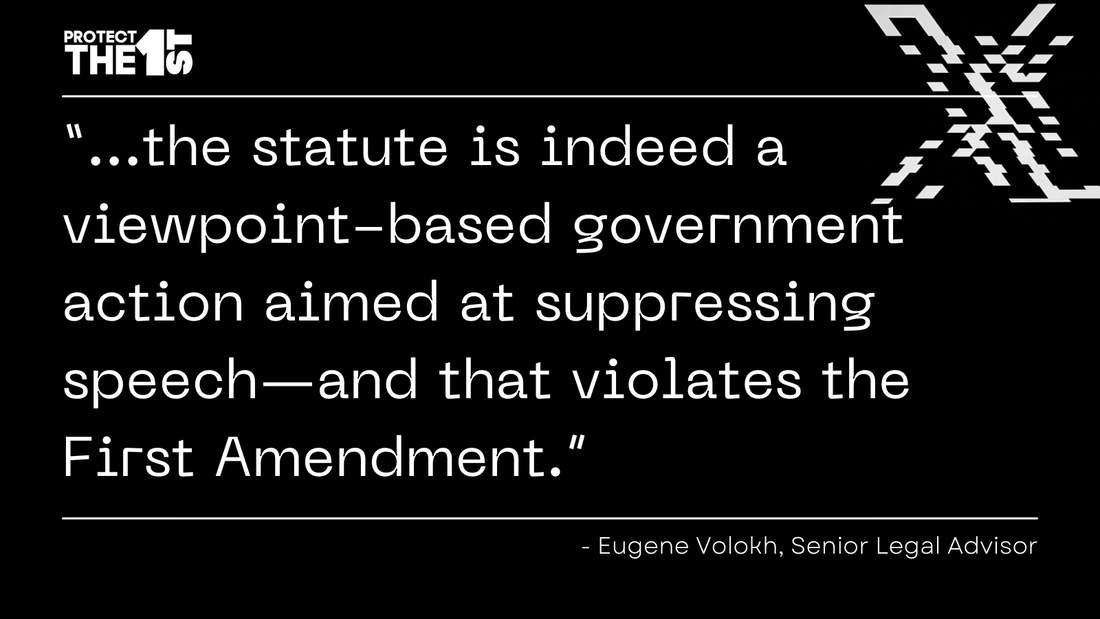
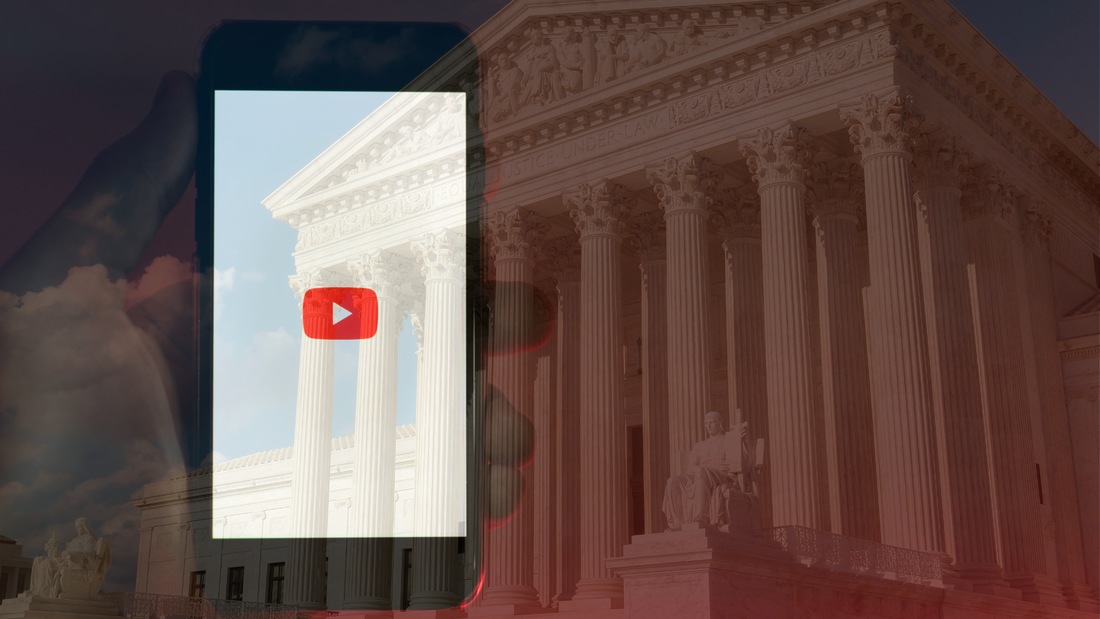
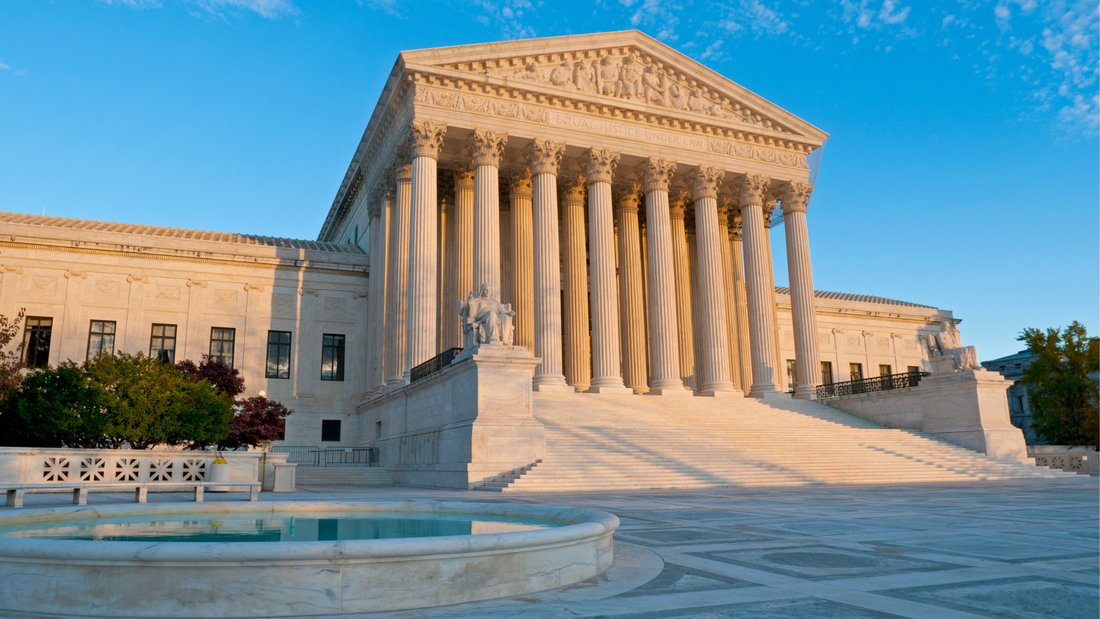
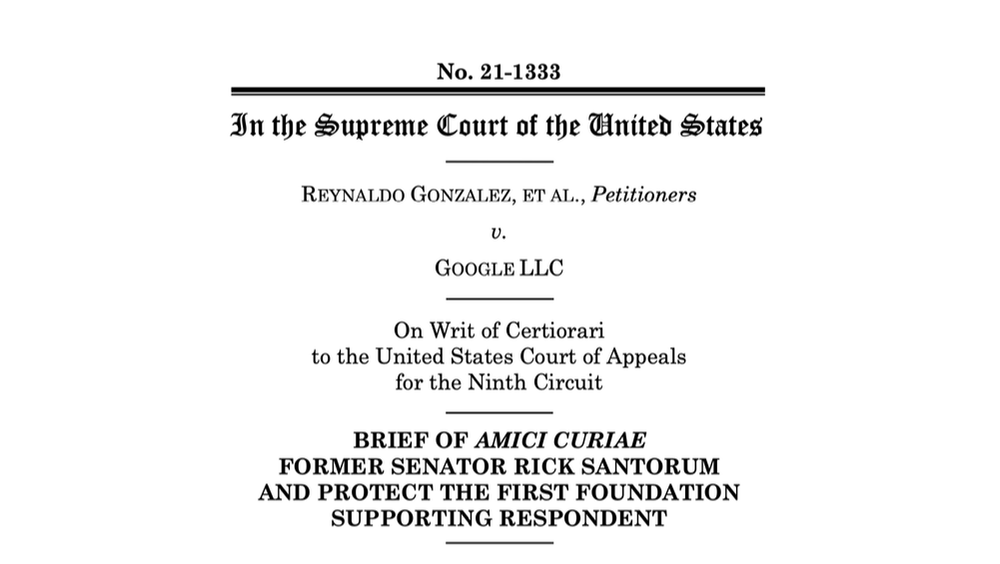
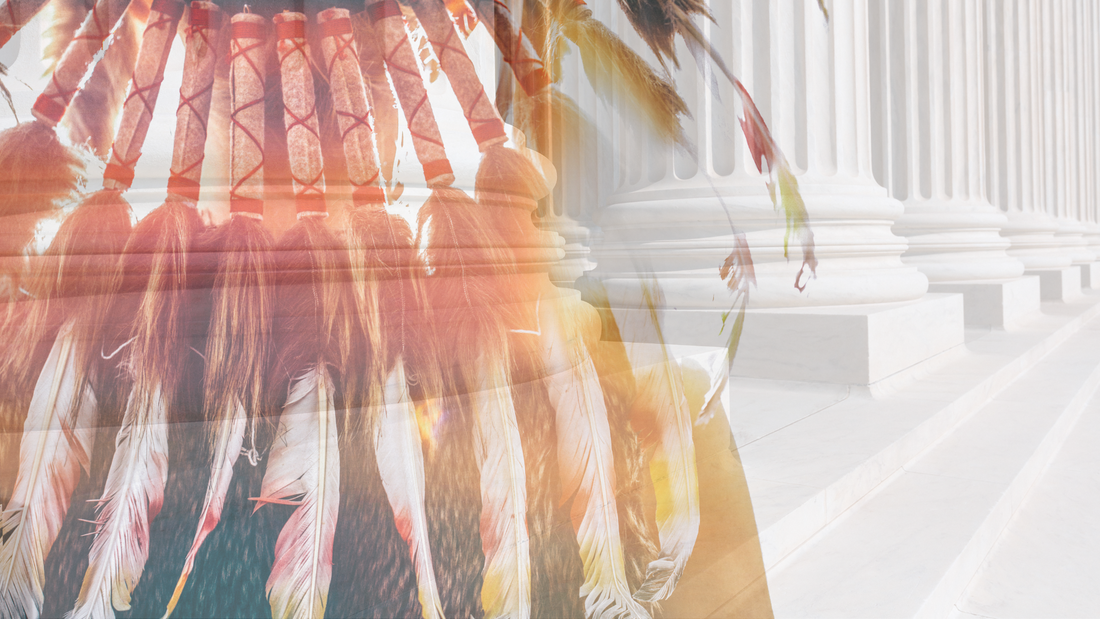
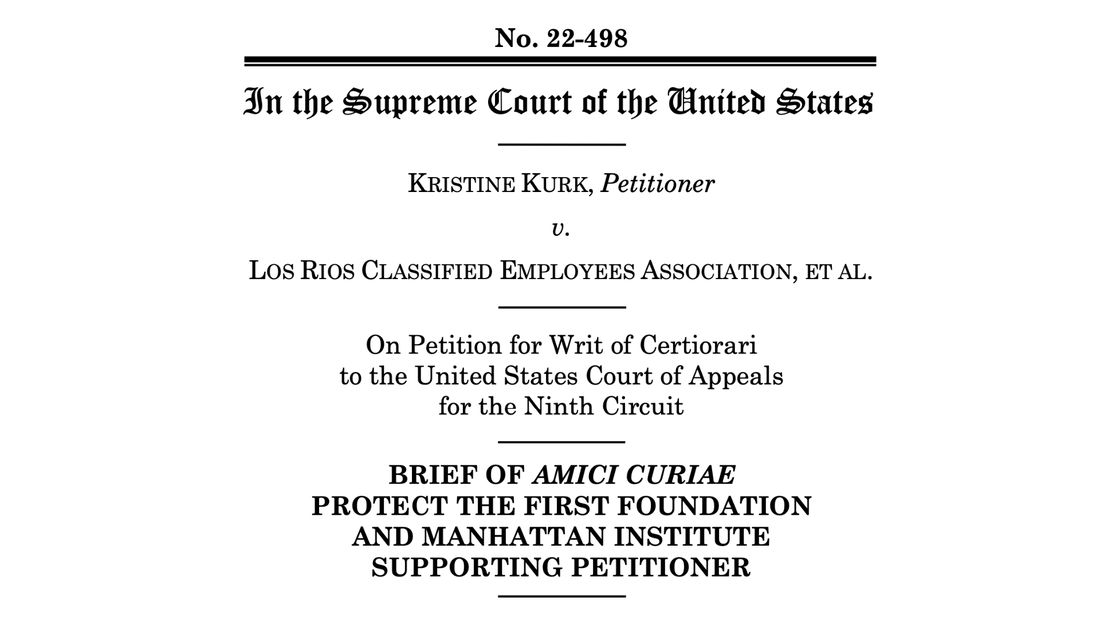
 RSS Feed
RSS Feed